What it's like to eat at one of Singapore's famous hawker centers, where you can get Michelin-starred street food for less than $5
Katie Warren

- Singapore's hawker centers sell cheap, delicious street food.
- Some hawker stalls have earned Michelin stars and the culture has been recognized by Unesco.
- The centers are no-frills, mostly cash-based, and offer a wide variety of Asian cuisines.
Singapore's hawker centers are the beating hearts of the city-state, reflecting its multicultural identity.
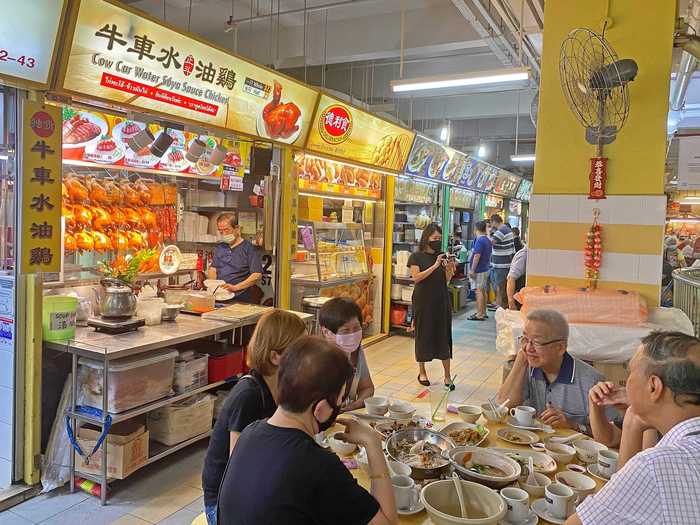
Singapore is home to more than 100 hawker centers, which are typically open-air food courts that sell a variety of Asian and other cuisines at affordable prices.
In December, Singapore's hawker culture was added to Unesco's Representative List of the Intangible Cultural Heritage of Humanity, which also includes things like yoga in India and sauna culture in Finland.
Unesco describes Singapore's hawker centers as "community dining rooms where people from diverse backgrounds gather and share the experience of dining over breakfast, lunch and dinner."
Some Singapore hawker stalls have even earned Michelin stars.
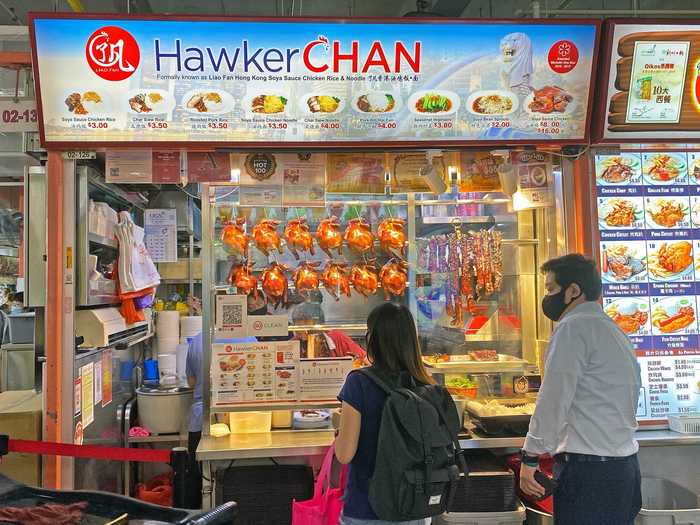
The most famous example is Hawker Chan, formerly called Hong Kong Soya Sauce Chicken Rice & Noodle, which sells the world's cheapest Michelin-starred meal: a chicken-and-rice dish — usually simply called "chicken rice" — that costs 3 Singapore dollars, or about $2.25.
The other hawker that currently holds a Michelin star is Hill Street Tai Hwa Pork Noodle, which serves minced meat noodles starting at 5 Singapore dollars, or about $3.70.
One Singapore hawker center, Newton Food Centre, was used to film scenes for the popular 2018 film "Crazy Rich Asians."

"This is one of the only places in the world where street food vendors actually earn Michelin stars," the character of Nick Young tells his girlfriend in the film.
The filmmakers paid 80% of the hawkers to remain in the scene, Singapore chef John See, who consulted as the head of food for the film, told the Michelin Guide.
I recently stopped by Singapore's largest hawker center, the Chinatown Complex Market & Food Centre. At lunchtime on a Friday, it was bustling with people.
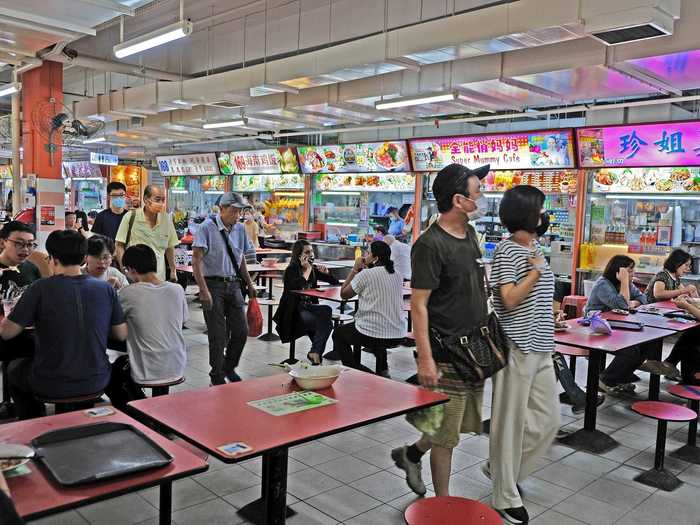
The center, which was built in 1983 and renovated in 2019, has more than 200 food stalls and hundreds of other stalls that sell fresh produce, clothing, and other goods.
Here's what it's like getting a meal at a hawker center in Singapore.
Most hawker stalls only make one single dish or at most, a handful of dishes. Local favorites include Hainanese chicken rice, chili crab, and laksa (a spicy coconut milk-based noodle soup) - but there are so many more.
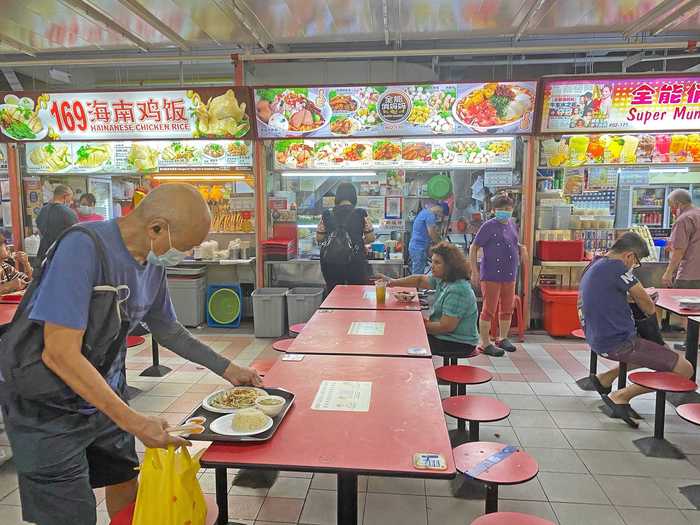
Source: Visit Singapore
There's no shortage of beverage stalls either, which serve bottled water, beer, soda, coffee, tea, and all kinds of fruit juices.

All hawker stalls are numbered, and at this particular center, there was a directory for those looking for a specific stall.
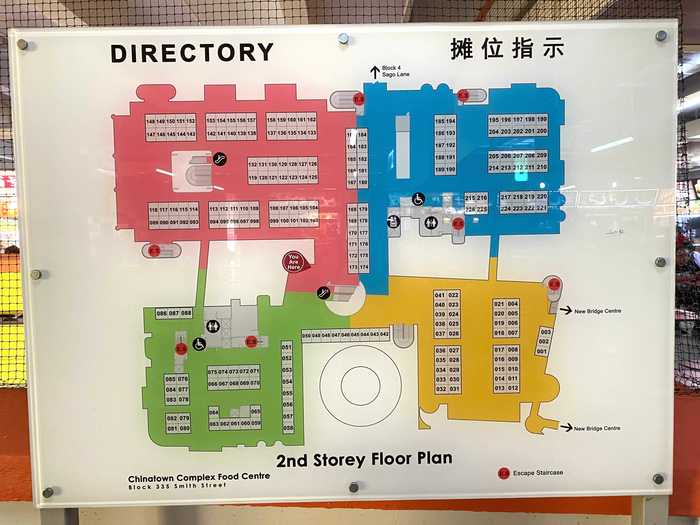
You can Google "best stalls at X hawker center" and come across a dozen blogs with recommendations for specific stalls, which will almost always include the stall number so you can easily locate them.
Otherwise, you can wander the hawker center and just see what looks good.
Hawkers in Singapore are not allowed to tout, or solicit customers to visit their stalls. And for the most part, they seem to obey this rule.
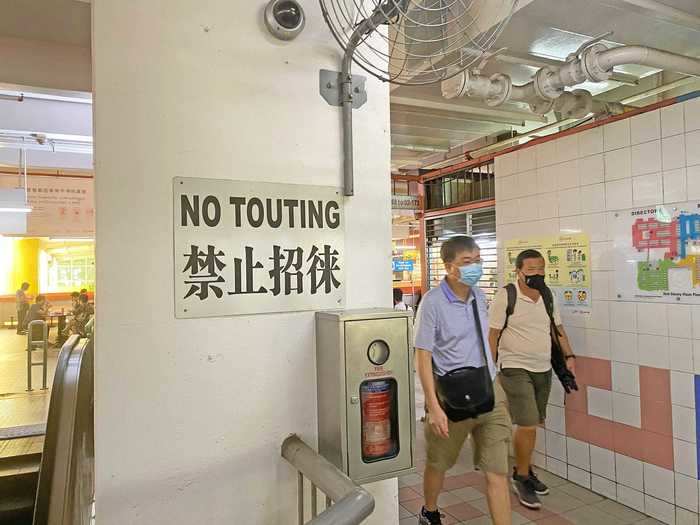
Source: Singapore Statutes Online
More and more hawkers are starting to accept credit cards and digital payments, but many still only take cash. It's best to bring some whenever you visit a hawker center just in case.
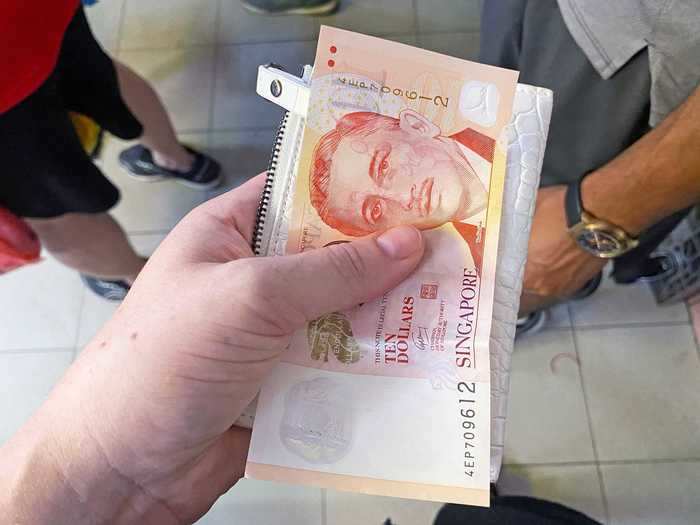
Most dishes cost less than $5, and there's no need to tip as the service charge is usually included in the bill.
The popular stalls often have queues at peak times, but they typically move quickly.
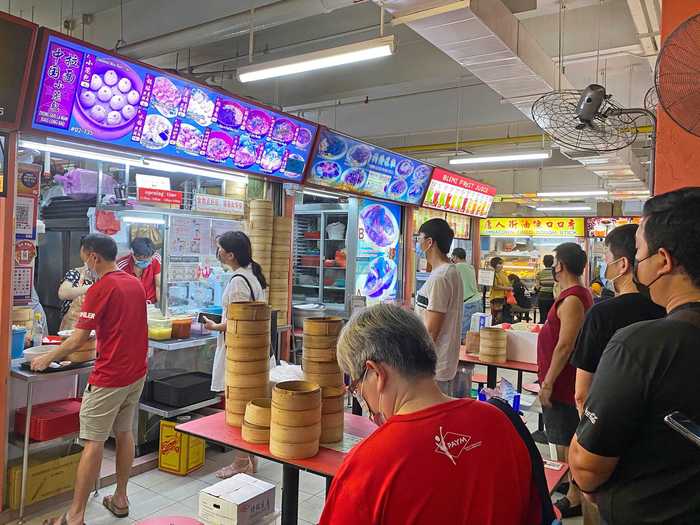
The food is cooked on-site, often in tight quarters as the stalls are not large.
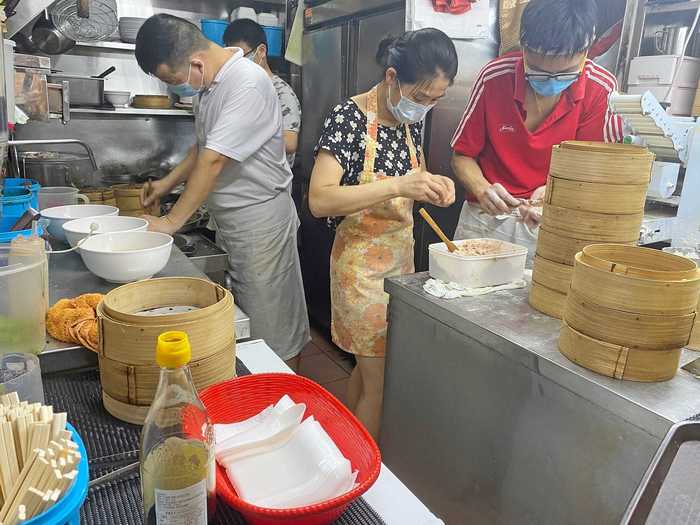
While you wait, you can self-serve any sauces and garnishes the hawker provides.
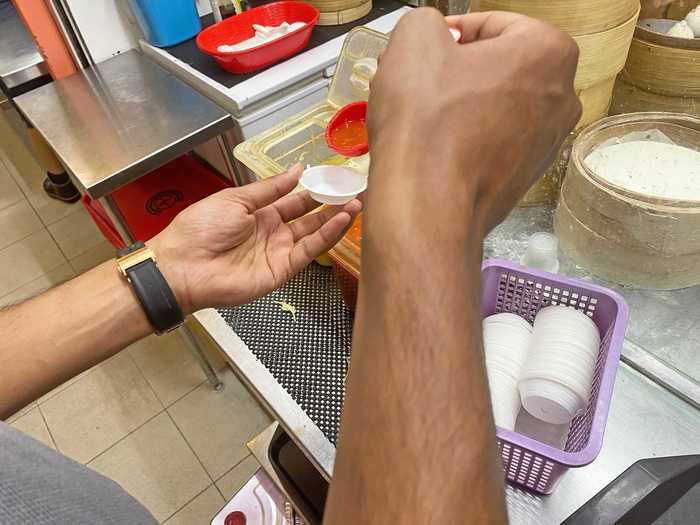
The stalls provide chopsticks and plastic cutlery, but you'll want to bring your own napkins as very few hawkers hand them out.
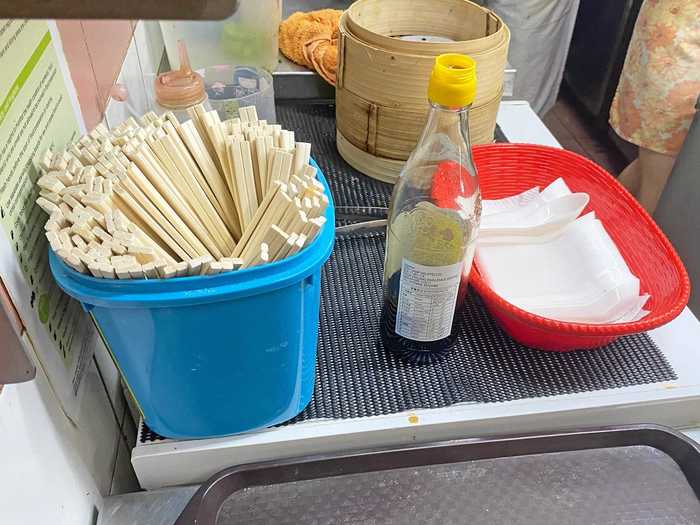
Your food will be served on a plastic tray. Then it's time to find a place to sit.
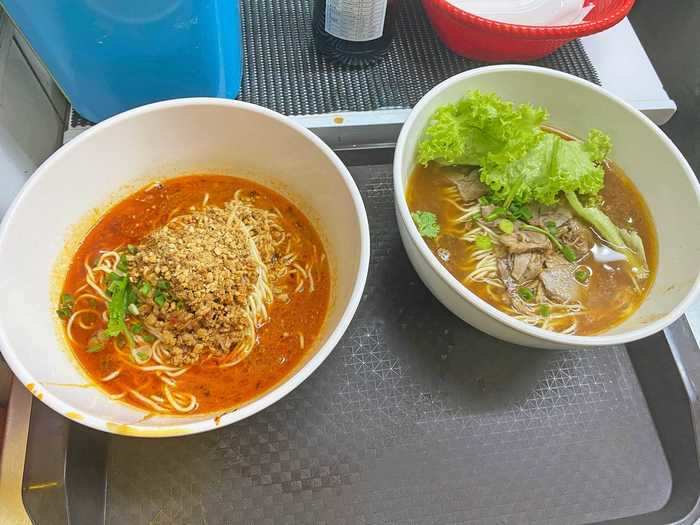
You can sit wherever you like in the hawker center, but you should be aware of Singapore's "choping" culture.
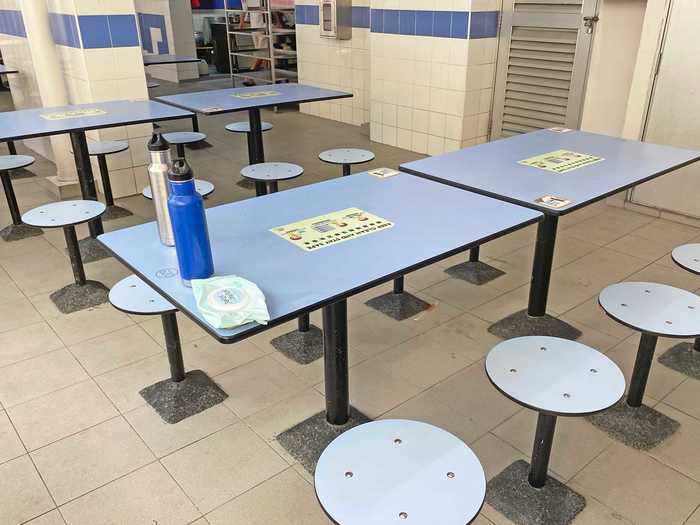
"Choping" seats, or saving them with an item such as an umbrella, a packet of tissues, or a water bottle, is one of the unspoken customs of Singapore hawker centers.
It can be particularly helpful to "chope" a table if you're planning on ordering a dish that takes more time to prepare, like local favorite chili crab. In this case, the hawker will ask for your table number (all hawker tables are numbered) so they can deliver your food when it's ready.
Once you've found a free spot or made your way to your own "choped" seat, you're free to enjoy your food and stay as long as you like.
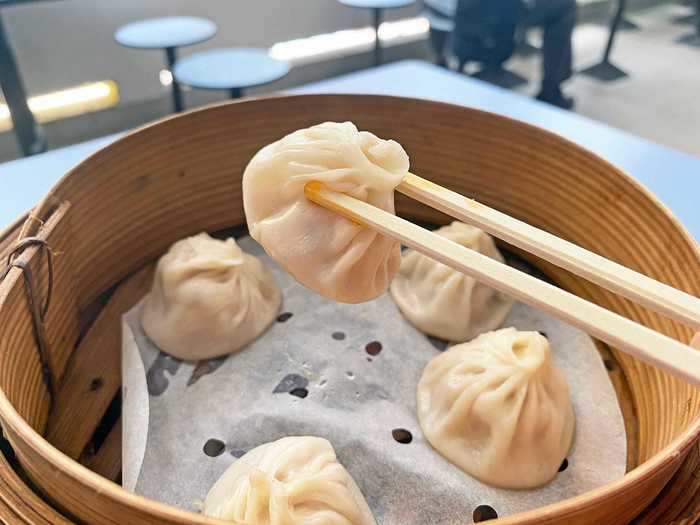
When you're finished eating, you don't need to return your tray or bowl to the hawker stall where got your food. Instead, drop it off at one of the many tray receptacles throughout the center.
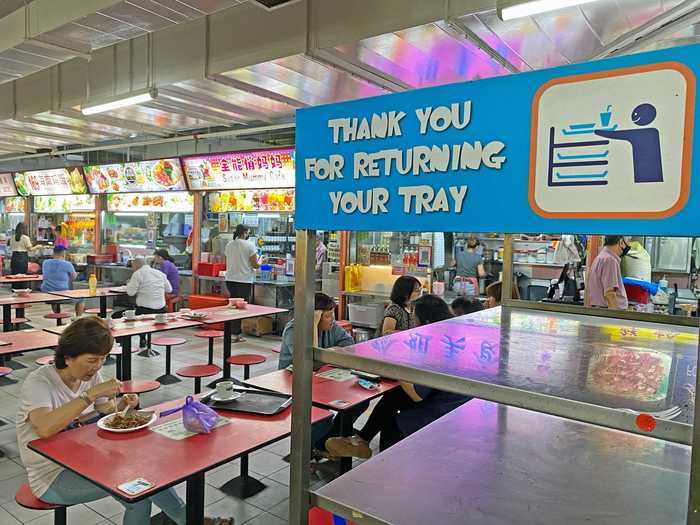
There are separate receptacles for halal and non-halal cuisine.
Employees are constantly making the rounds through the hawker centers to keep the tables clean.
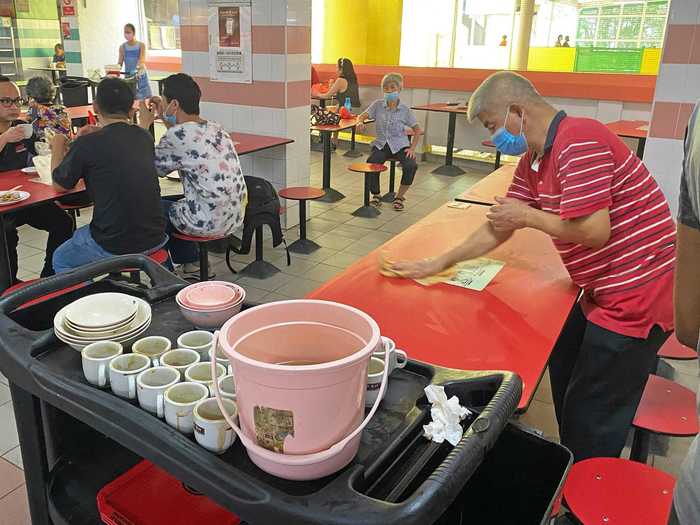
There are bathrooms at hawker centers, but in some cases you may need to pay 10 cents to use them - and you'll need to grab toilet paper before going inside.
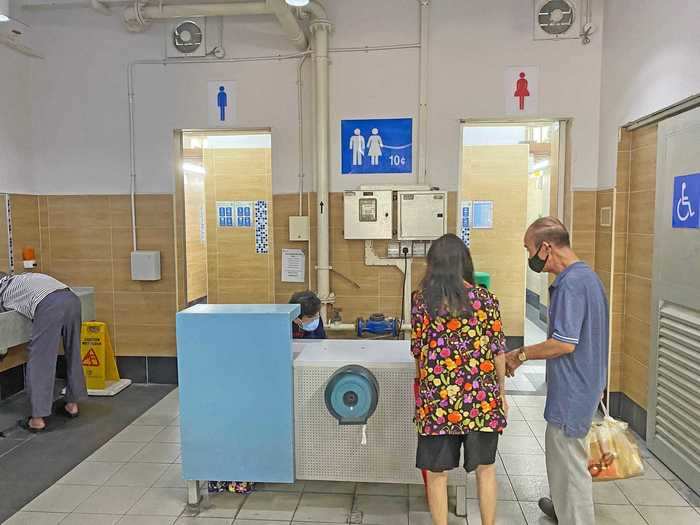
Toilet paper is included in the 10 cent fee — you don't have to pay extra for it.
Having a meal at a hawker center is a no-frills, unpretentious experience - but one that's uniquely Singaporean and certainly not to be missed if you find yourself in the city-state.
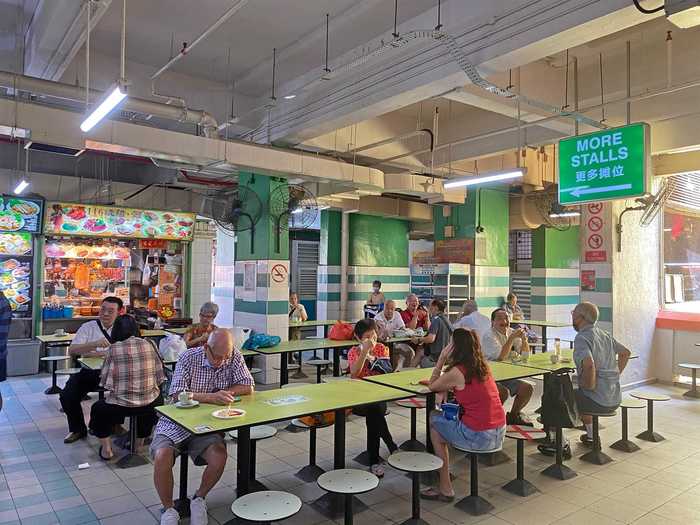
READ MORE ARTICLES ON
Popular Right Now
Popular Keywords
Advertisement